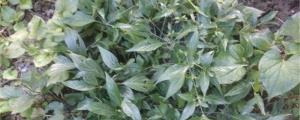Will Bleach Kill Tomato Plants?
Tomatoes are one of the most popular vegetable crops grown in home gardens all over the world. However, sometimes these plants are vulnerable to pests, diseases and fungal infections. In an effort to keep their plants healthy and safe, some gardeners may consider using bleach as a solution. But, will bleach really kill tomato plants? Let's find out.
What is Bleach?
Bleach is a very common household cleaner that contains sodium hypochlorite, a chemical compound that is highly effective at killing bacteria, viruses, and other microorganisms. It's often used to disinfect surfaces, whiten clothes, and kill mold and mildew in bathrooms and kitchens.
How Does Bleach Work?
Bleach works by oxidizing and breaking down organic compounds, including bacteria and fungi. It destroys the proteins and enzymes within living cells, essentially causing them to disintegrate. When applied to plant tissue, bleach will cause the cells to break down, leading to the death of the plant.
Can Bleach Kill Tomato Plants?
The answer to this question is both yes and no. Bleach can definitely kill tomato plants if it's applied directly to the foliage or stems. The chemicals in the bleach will cause the cells to break down and eventually die. However, if used in small amounts and properly diluted, the bleach might not harm the plants.
Is Bleach Safe to Use on Tomato Plants?
Bleach is not recommended to be used on tomato plants or any other plants in your garden. It can seriously damage or even kill plants, and even small amounts of it can have a negative impact on the soil and other organisms living in it. Additionally, bleach can be toxic to humans and animals if ingested or inhaled, so it's important to use it with caution and follow all safety instructions on the label.
Alternatives to Bleach for Tomato Plants
If you're looking for a safe and effective way to protect your tomato plants from pests and diseases, there are many organic alternatives that you can use. One option is to use neem oil, an organic insecticide that is derived from the seeds of the neem tree. It is effective against a wide range of pests, including aphids, mites, and whiteflies. Another option is to use compost tea, which is made by steeping compost in water. It is rich in beneficial microorganisms that can help protect your plants from disease while also improving soil health.
Conclusion
In conclusion, bleach can kill tomato plants if it's applied directly to the foliage or stems. However, it's not recommended as it can damage the soil and other organisms living in it. Additionally, bleach can be toxic to humans and animals if not used properly. Instead, opt for organic alternatives such as neem oil or compost tea to keep your plants healthy and safe.

 how many times do yo...
how many times do yo... how many planted tre...
how many planted tre... how many pine trees ...
how many pine trees ... how many pecan trees...
how many pecan trees... how many plants comp...
how many plants comp... how many plants can ...
how many plants can ... how many plants and ...
how many plants and ... how many pepper plan...
how many pepper plan...





























